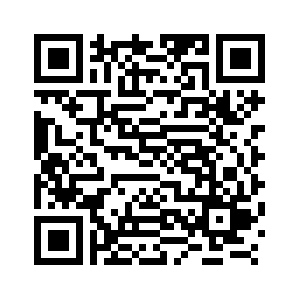JERUSALEM/BEIRUT, Oct. 30 (Xinhua) -- Israel's state-owned Kan TV News on Wednesday revealed a document claiming to be a draft agreement between Israel and Lebanon, proposed by the United States, to end the current Israeli-Hezbollah clashes.
Quoting senior Israeli officials, the channel said the war cabinet is satisfied with the draft that was formulated by U.S. envoy Amos Hochstein and submitted to Israel, and its chances of being accepted are high.
According to the draft, Israel will have to withdraw its forces from southern Lebanon within seven days after signing the agreement, which will be overseen by the United States and another country.
Within 60 days, Lebanon will have to disarm any unofficial military group in southern Lebanon and monitor the sales and production of weapons on its territory so that they do not reach Hezbollah or other armed groups, the draft read.
The Lebanese army and the United Nations Interim Force In Lebanon (UNIFIL) will be the only armed forces in southern Lebanon, it read.
The United States, together with other international bodies and countries to be agreed upon, will oversee the implementation of the agreement, with the possibility of imposing economic and diplomatic sanctions to ensure its implementation.
Meanwhile, Lebanese Prime Minister Najib Mikati said he hopes to witness a ceasefire with Israel in the coming days.
"Our goal is to protect Lebanon and stop the Israeli aggression. I contacted the UN envoy Amos Hochstein, who is on his way to the region," said Mikati in a televised interview with al-Jadeed local TV channel.
Mikati said that no weapons should be in the area south of the Litani River except in the hands of the Lebanese army. "We are committed to all matters related to Resolution 1701, and the goal is establishing stability in Lebanon."
Resolution 1701, passed in 2006, ended a 33-day war between Israel and Hezbollah. It called for a cessation of hostilities, Israeli withdrawal from Lebanon, and bolstering the UNIFIL to monitor the ceasefire alongside the Lebanese army.
The resolution established a demilitarized zone between the Lebanon-Israel border and the Litani River, permitting only the Lebanese army and UNIFIL forces to bear arms in the area. Israel has accused Hezbollah of violating the resolution and deploying troops south of the Litani River.
Also on Wednesday, UNIFIL spokesman Andrea Tenenti said that since Oct. 1, the body has been subjected to more than 30 incidents that have damaged UN property and injured peacekeepers.
"We have been able to identify 20 of these incidents as shooting or actions by the Israeli armed forces, at least seven of which were deliberate," Tenenti said, noting that the sources of 12 other incidents remained unknown.
"Let's be clear: the actions of both the Israeli army and Hezbollah are putting peacekeepers at risk," the spokesman noted.
Since Sept. 23, the Israeli army has been launching an unprecedented, intensive air attack on Lebanon in a dangerous escalation with Hezbollah.
The death toll from Israeli airstrikes on Lebanon since the beginning of the war on Oct. 8, 2023, reached 2,822, while injuries went up to 12,937, the Lebanese Health Ministry reported on Wednesday. ■



